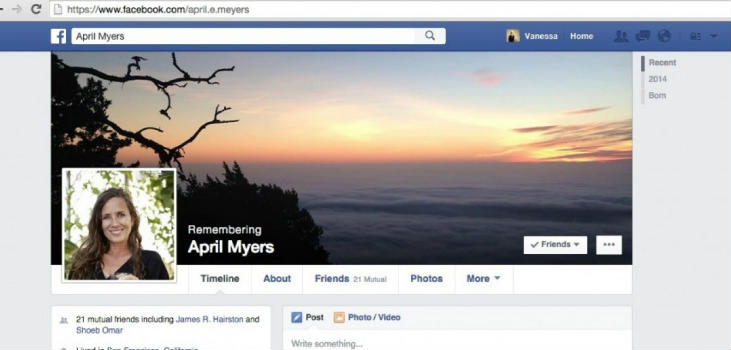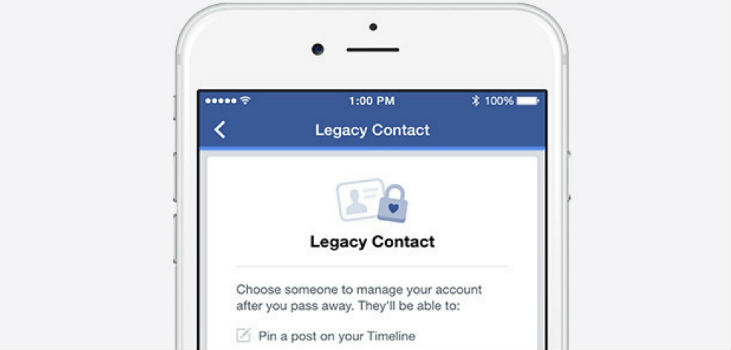What should Facebook do with an account of a deceased young woman, for instance, when one of her parents wants to delete the account but the other wants to preserve it as a memorial for friends and family? Should your parents be able to read your Facebook messages if you die?
In a blog post, Facebook explains that it is difficult for them to know what action to take with the account of someone who has died.
“When people come to Facebook after suffering a loss, we want them to feel comfort, not pain, which is why we stop sending birthday reminders once we know someone has passed away,” said Monika Bickert, Director of Global Policy Management, in a blog post.
When we lose someone we love, we often feel a desperate need to connect to them in whatever way we can. In moments like that, our phones, the internet and social media can sometimes be a refuge.
But other times, the online world can make loss even more painful. The reminders of our loved ones are everywhere, and with each reminder a renewed realisation of their death.
These questions -- how to weigh survivors’ competing interests, determine the wishes of the deceased, and protect the privacy of third parties – have been some of the toughest and we admit that we still don’t have all the answers, Facebook said.
However, when Facebook learns that someone has passed away, their standard process is to add “Remembering” above the name on the person’s profile, to make clear that the account is now a memorial site, and to stop any new attempts to log into the account.

Once an account is memorialised, anything on the profile remains on Facebook and is visible to the people who could already see it before the profile was memorialised. Facebook does not remove or changes anything. Facebook said, this is our way of respecting the choices someone made while alive.
Memorialisation is the default action, but there could be scenarios wherein some people might not want their account preserved this way. They might prefer their profile to be deleted.
“Recognising this, we give people a way to let us know they want their account permanently deleted when they die. We may also delete profiles when the next of kin tells us that the deceased loved one would have preferred that we delete the account rather than memorialise it,” Bickert emphasised.
Other people might want a friend or family member to be able to manage their profile as a memorial site after their death. That’s why in 2015, Facebook created the option for people to choose a legacy contact.
A legacy contact is a family member or friend who can manage certain features on your account if you pass away, such as changing your profile picture, accepting friend requests or adding a pinned post to the top of your profile.

They can also elect to delete your account. You can give your legacy contact permission to download an archive of the photos, posts and profile information you shared.
Also, to protect the privacy, Facebook won’t turn private messages to your family members. In a private conversation between two people, Facebook assumes that both people intended the messages to remain private. And even where it feels right to turn over private messages to family members, laws may prevent us from doing so.
The Electronic Communications Privacy Act and Stored Communications Act, for instance, prevent us from relying upon family consent to disclose the contents of a person’s communications, added Bickert.
